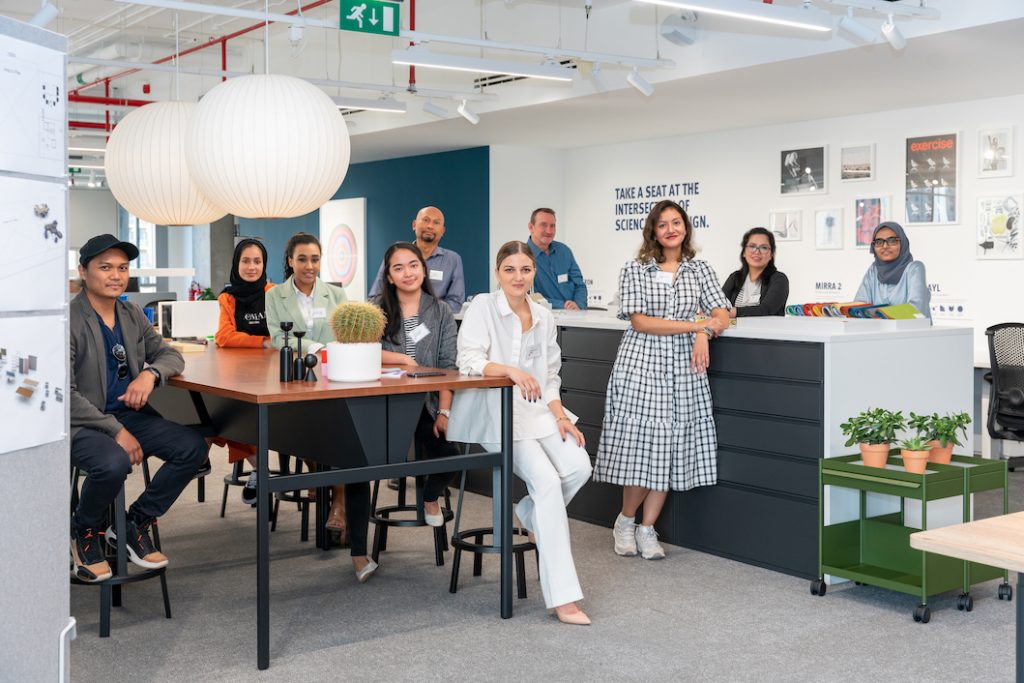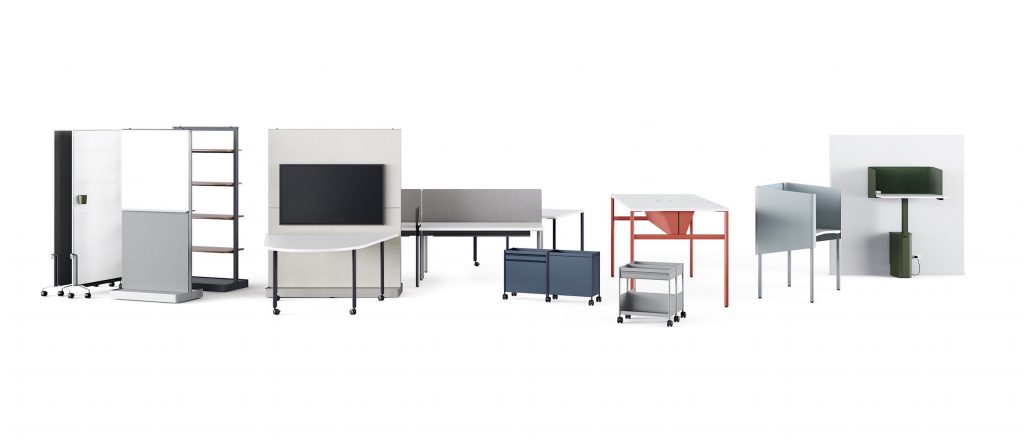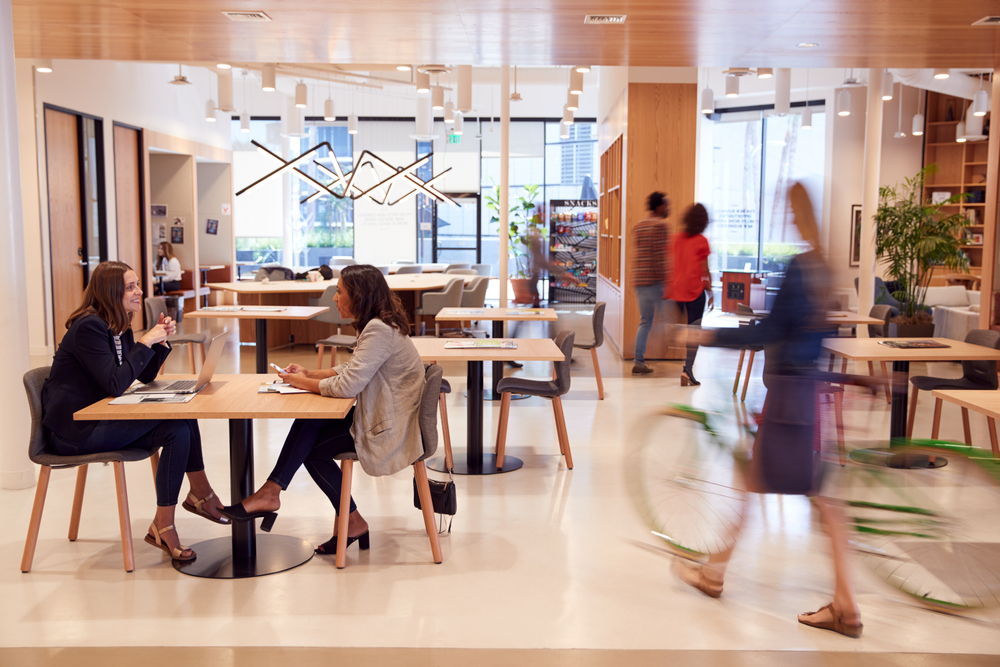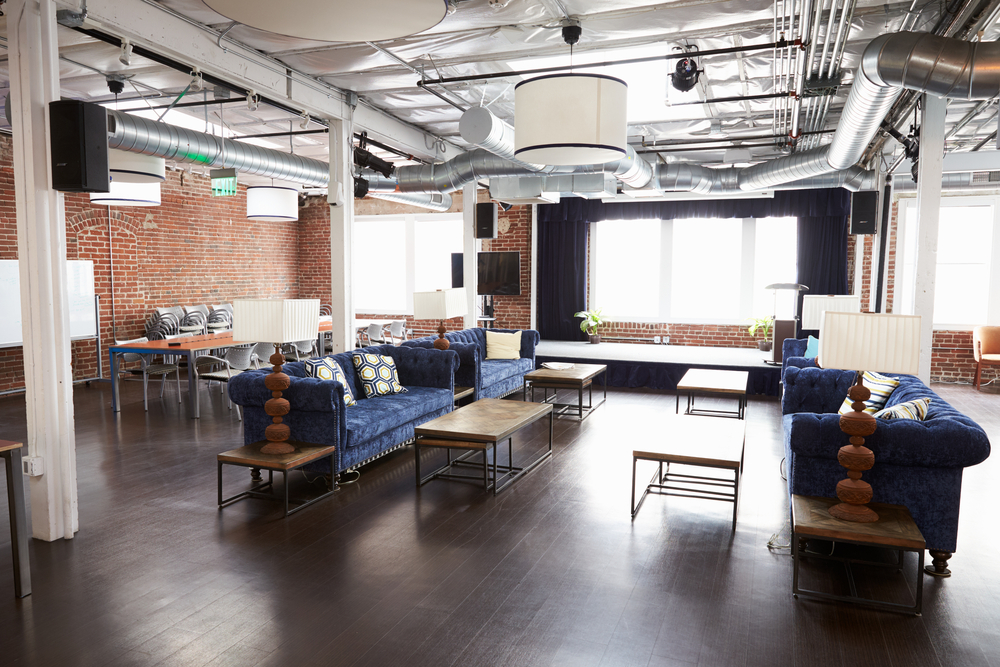Leading interior designers discussed the future of work and tested the latest furniture collection during the “Designing for the Future with OE1” event, hosted by Herman Miller.

“Designing for the Future with OE1” event first saw dealers, top interior designers, and clients across the Middle East connect virtually with designers Sam Hecht and Kim Colin of London-based Industrial Facility who shared the design story behind the new collection. Industrial Facility—is in central London’s Clerkenwell neighborhood. Since founding their studio in 2002, Hecht and Colin have used their “worldly views” to design objects that range in scale from the diminutive to the architectural. Many of their designs are held in museum permanent collections, including those of MoMA in New York City, The Art Institute in Chicago, The Finlandia Museum, Helsinki, The San Francisco MoMA, The Pompidou Centre in Paris, the State Museum of Applied Arts in Munich, and the V&A Museum in London.

“OE1 offers choice, is flexible, and can adapt so that individuals (not just organizations) get to experience these qualities directly.” says Kim Colin. “Our challenge was to invent something completely new while also making it recognizably useful. OE1 is designed so that everything is having a conversation with each other, and the conversation is healthy.”
Stacy Stewart, Herman Miller Regional Director, says his company looked to experts across the world for cutting edge knowledge– especially those with an eye to the future of business practices. He says: “This was an opportunity for us to demonstrate how those research findings have been incorporated into this new and holistic collection. Additionally, several regional designers who visited our newly redesigned showroom had the opportunity to play and experiment with the OE1 collection to learn how it can enhance the overall ‘experience of work’ for their practices as well as their clients.”
Designing for the future with OE1
During the workshop, participating designers worked together to create a flexible workspace, which allows two teams to work on different tasks within the same space.
Adriana Graur, Design Director at DWP’s regional office, explains the concept: “Through the simple use of flexible, creative furniture, we managed to shape two individual zones – a more task-focused one where people could work around a communal table or split it depending on the task requirements; and a second one designed for more relaxed collaboration supported by lounge seating.”
The OE1 Collection comprises of mobile tables and trolleys, movable walls, and height-adjustable workstations, allowing employees to easily move and recreate their work environment.

For Arwa Chaklasi, Interior designer at AAID, Dubai-based design studio specialising in workspaces, the greatest advantage of the OE1 range is that it, “Supports multiple functions throughout the day”. “Even a small space in the office can be repurposed depending on the task at hand on that day or hour. As a result, there is more value generated for that square meterage of space.” she says.
Ruqaiyya Reza, Project designer at AAID, was particularly drawn to the OE1 Micropacks. She comments: “When people need to come to the office for an hour or two for focused work, these workstations can also be used in a touch-down setting, which many of our clients want, especially as the sit-stand option.”
As Bishop Design Studio focuses primarily on hospitality design, its interior designer, Sengul Hassan, looks at the use of the OE1 range from a different perspective. “What once were lounges catered to just being one for breakout or a waiting space, have now adapted their spaces to suit both residents and fast-moving business travelers working on the go. Providing multiple settings and quick user control, OE1 range is ideal for day-to-day travelers or just those residents who require a new environment to work in, both temporarily and permanently.”
Hybrid workspaces: Winning the war for talent
In addition to putting the OE1 collection to the test, participating designers also commented on their current projects in the region and how their clients are preparing for the future of work.
“There is a common understanding that people no longer want enclosed offices and that we need to provide them with a diversity of work arrangements and work types. Working from home makes me extremely productive, but it’s not the same for everyone. As designers, we need to make it flexible enough so that everyone feels comfortable working the way they like.” comments Graur.

Chaklasi confirms the increasing demand for hybrid workspaces, adding: “We have several projects that we started pre-Covid, which are now moving from assigned to unassigned desking as a result of the demand for more hybrid workplaces that take both home and office work into account.”
Designer Dwight Plamenco of Dubai-based SAY Studio explores the topic further: “Based on our current projects and client briefs, many people still prefer to work from home at least some days a week, so as designers, we must accommodate different work scenarios.”
Reza believes that the major challenge companies face when trying to recruit and retain talent is adjusting work from home routines to an office environment so that people feel “at ease”.
As we try to bring people back into the office from a post-pandemic setting, we need to give them a variety of workspaces to make them feel more comfortable upon returning to the office.” she says.
Hassan believes that trust is the key to achieving greater flexibility at work while transitioning between workplace settings, be it an office, a home, or even a coffee shop. Her perspective comes from the younger generation of designers who support the “work from anywhere” concept. “Design professionals enjoy the ability to alter their environment, change their workspace, and be inspired by their surroundings.” she concludes.
